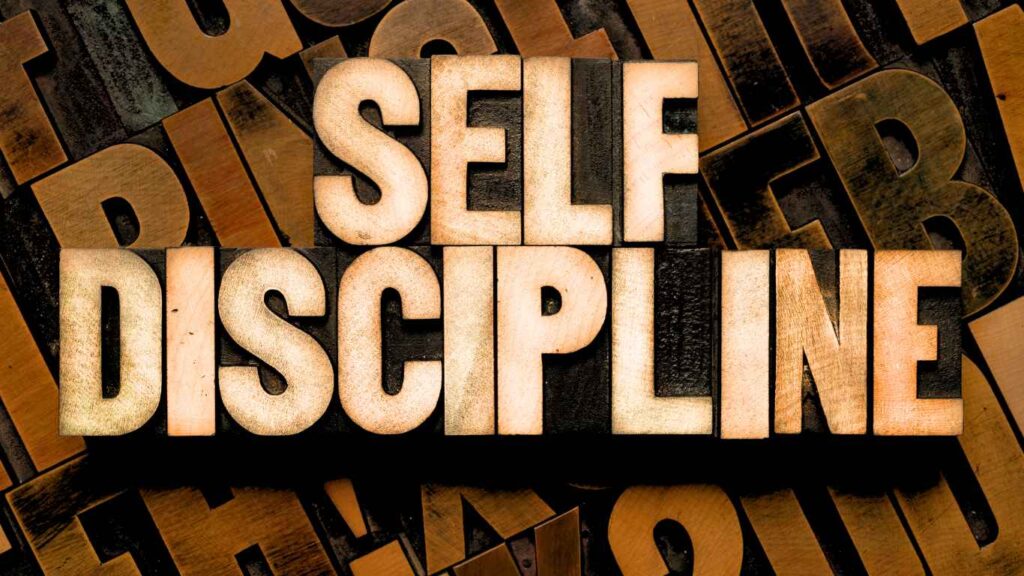A bachelor’s degree is one of the essential qualifications in the modern job market. But, for some, attending a traditional college or university isn’t an option due to work or family commitments.
Fortunately, there is a viable alternative to earning a bachelor’s degree online.
We will discuss the various benefits of earning a bachelor’s degree online and why it is the ideal choice for many individuals.
Let’s get started!
8 Benefits of Earning a Bachelor’s Degree Online

We all know that earning a college degree is essential, but what if you could earn your degree online?
There are many great benefits to earning your degree online. We’ve outlined eight of the most important below.
Increased Accessibility

Online bachelor’s degree programs provide far greater accessibility to higher education than traditional brick-and-mortar schools.
With online learning, students can pursue a degree from anywhere in the world with an internet connection. It opens the door for working adults, parents, and non-traditional students who need flexibility in their educational pursuits.
Whether you are an international student looking to study abroad or a stay-at-home parent trying to further your education, it is one of the best options for pursuing your dreams.
More Affordable

Earning a bachelor’s degree online is often more affordable than attending a traditional four-year college or university. It is because many associated costs, such as room and board, are eliminated. Instead, students can access their classes, course materials, and textbooks online.
In some cases, tuition rates may even be reduced for online programs.
Additionally, online students typically don’t have to factor in the cost of transportation to and from campus. It can save hundreds of dollars each semester in fuel, parking fees, and other related expenses. Additionally, online students may be able to take advantage of scholarships and grant opportunities that may not be available to traditional college students.
Self-Paced Learning

One of the most significant benefits of earning a Bachelor’s degree online is the ability to work at your own pace. Online courses are designed for those who need the flexibility to learn according to schedule. You can choose when and where you want to study, which allows you to fit coursework into your life’s demands.
Also, it allows you to progress through courses as quickly as you like or take longer to understand the material. This learning style will enable students to customize their education according to their learning needs.
Self-paced learning also allows you to design your study plan and manage your time effectively. It benefits those with busy schedules, such as those working full-time jobs or raising a family. By taking advantage of this benefit, you can complete the coursework you need on your own time.
Increased Opportunities

Another benefit of earning a bachelor’s degree online is that it opens up new opportunities for career advancement.
You can find better jobs or move up in your current field with a degree. The extra credential can also lead to higher salaries and more competitive positions. Additionally, having an online degree shows potential employers that you are self-motivated and have the knowledge needed to excel in the digital age.
Also, you can connect with other professionals in your field through online networking, which can open doors to potential job offers and collaborations.
New Skills Development

Earning a bachelor’s degree online allows students to develop new skills. Online courses are designed to promote digital literacy, which is essential for those seeking to enter a competitive job market. Students will gain experience with modern technology, communication tools, and online collaboration by studying online.
Students can hone their problem-solving skills, critical thinking, and time management through online courses. Additionally, they can learn how to use data analysis and research to support their studies. These skills can give them a competitive edge in the job market and help them stand out.
Furthermore, by studying online, students can acquire valuable leadership and interpersonal skills that can help them professionally.
One-On-One Communication

With this, students can access personalized one-on-one communication with their instructors and faculty.
Through online learning platforms, students can interact directly with their teachers and ask questions or provide feedback. It allows for a much more personalized learning experience than what may be available in a traditional classroom setting.
Online courses typically have multiple channels of communication available, such as video chat, email, or discussion boards. This one-on-one communication enables instructors to provide individualized attention and support when needed.
Additionally, this personalized communication can help keep students on track and motivated to reach their goals.
Better Self-Discipline

When it comes to earning a Bachelor’s degree online, students can develop their self-discipline in a new way.
Unlike traditional college settings, online classes offer students the freedom to learn at their own pace and on their schedule. With this freedom comes the need to stay focused and motivated, which can help students become more disciplined over time.
Additionally, having a specific goal in mind, such as obtaining a degree, can help students stay focused and work towards that goal. Students will find themselves better prepared for life after graduation through increased self-discipline.
After this, they are ready to take on any challenge that comes their way.
Short Time

Many students often need help with how long it will take to finish their bachelor’s degree when pursuing an online program. It is important to remember that, in most cases, you can complete your degree in a shorter amount of time.
Online programs are incredibly flexible, allowing you to access course material anytime and fit your studies into whatever schedule works best for you. You can often complete your degree in less than four years.
It can be beneficial if you finish your degree as soon as possible so you can begin pursuing career opportunities.
Conclusion
Earning a bachelor’s degree online is becoming an increasingly popular choice for students of all ages.
Furthermore, online courses are often more affordable than traditional courses, making them even more attractive. You may save time and money by taking advantage of tuition discounts and financial aid opportunities available through online programs.
No matter your individual goals, earning a bachelor’s degree online could be the perfect fit for you.



![Why Online Clinical Psychology PhD Programs Are Better in 2025 [APA-Accredited]](https://consumersweek.com/wp-content/uploads/2025/06/Why-Online-Clinical-Psychology-PhD-Programs-Are-Better-in-2025-APA-Accredited-870x570.webp)










![No Win No Fee Lawyers: The Hidden Truth About Settlement Cuts Legal representation through no win no fee lawyers gives clients a way to fight cases without paying anything upfront. Many clients don't know that these services take a big chunk of money after winning the case. Lawyers usually take 25% to 40% of what you win as their contingency fee. The amount lawyers take from settlements can add up fast. A $100,000 settlement means your attorney gets $30,000 if they charge a 30% fee after winning your case. Your solicitor's cut might be £10,000 from a £30,000 compensation award, based on your agreement percentage. This payment model stays pretty much the same for no win no fee lawyers in different places, though percentages can change. This piece breaks down what you need to know about contingency fee deals. You'll learn about standard fee ranges, extra costs beyond the basic fee, and times when this payment setup might not work in your favor. Smart clients should think over these money matters before signing up with a lawyer to make better choices about their legal help. What No-Win No-Fee Really Means Image Source: Express Legal Funding A no-win no-fee arrangement, also called a Conditional Fee Agreement, changes the way people get legal help. This payment approach removes the need to pay legal fees upfront and creates a partnership between clients and their attorneys. How contingency fees work No-win no-fee agreements are based on contingency fees. Lawyers get paid only when they win compensation for their clients. Most lawyers take between 25% and 40% of the final amount, based on how complex the case is and where it's filed. Lawyers take their cut after winning the case. To name just one example, see a case where a lawyer wins £30,000 in compensation with a 33% fee - they would receive £10,000. On top of that, some law firms use sliding scales where they charge less for quick settlements and more if the case goes to trial. The law requires a written agreement before any work starts. This paperwork spells out the lawyer's percentage, what costs you'll need to cover, and other key details. What happens if you lose the case The meaning behind "no-win no-fee" is clear - losing your case means you won't pay your lawyer anything. All the same, you should know about a few money-related details. You won't owe your lawyer when you lose, but some deals might make you pay for court fees, expert witnesses, or other case expenses. The other side could also ask you to pay their legal costs. Many lawyers suggest getting "After Event" insurance to protect their clients. These policies cover any costs if you lose your case, which makes the no-win no-fee setup much safer. Why lawyers offer this model Lawyers want to make legal help available to more people, so they offer these payment plans. This setup helps people who don't have much money take legal action when they have valid claims. The payment structure motivates lawyers to work hard. They only get paid by winning cases, which pushes them to get the best results possible. Lawyers carefully assess each case before taking it on a no-win no-fee basis. They usually accept cases that have a good chance of winning, since they put in lots of time and resources without any guaranteed payment. The Real Cost: How Much Do Lawyers Take from a Settlement Image Source: Greiner Law Corp. The true cost of no-win no-fee legal representation becomes clear once we look at contingency fees. Many clients feel surprised to see a big chunk of their settlement checks going to their attorney's fees. Typical percentage ranges (25%–40%) No win no fee lawyers typically ask for 25% to 40% of the total settlement amount. Personal injury attorneys usually take 33.3% (one-third) of the awarded compensation[101]. Lawyers and clients agree on this percentage before any work starts on the case. Several factors shape the final percentage. Your chances of winning, case complexity, and the work to be done play key roles in determining the attorney's cut. Some areas have laws that cap the maximum contingency fees for specific types of cases. Sliding scale based on case complexity Law firms often use a tiered fee system that changes with the case stage and complexity. This scale rewards quick settlements while paying attorneys fairly if more work becomes needed. The fee might start at 30% if the case settles before lawsuit filing. This number could climb to 35% after filing or reach 40% if the case goes to trial. Law firms often group cases by complexity: 10%-20%: Simple cases with straightforward settlements 25%-35%: Typical personal injury cases 35% and above: Complex cases requiring extensive resources Examples of payout breakdowns These ground examples show how fees affect settlements: A $15,000 settlement with a 33.3% contingency fee.pdf) puts $5,000 in the attorney's pocket, leaving $10,000 for the client. Similarly, from a $100,000 settlement with a 33% fee, the attorney gets $33,000 while the client receives $67,000[102]. Complex cases tell a different story. A $100,000 settlement with a 30% fee plus $5,000 in extra costs leaves $65,000 for the client after all deductions. These fees substantially change the client's final payout. Hidden Costs You Might Not Expect Image Source: Nelson Personal Injury Lawyers Beyond percentage-based fees, clients often feel surprised by extra costs that can reduce their final compensation by a lot. These hidden costs show up in the fine print of no-win no-fee agreements. You should think over these details before signing. Court filing and expert witness fees Legal proceedings come with unavoidable court filing fees. These charges differ by jurisdiction. They usually range from $30 for small claims to several hundred dollars for complex civil lawsuits. Expert witnesses can be expensive, with hourly rates ranging from $150 to $1,000 based on their credentials and testimony complexity. Expert witnesses charge more for court appearances than consultation work because of added pressure and prep time. Clients might still need to pay experts for their prep work even if the case settles before trial. Medical report and investigation costs Medical documentation is a vital part of many legal claims. These costs include fees to release medical records, create specialized reports, and prepare documents. Investigation costs cover evidence gathering, police reports, witness interviews, and other fact-finding work needed to build a strong case. Of course, some firms say they'll cover these expenses upfront, but clients don't completely avoid these costs. When these costs are deducted from your compensation Law firms take these expenses from the settlement amount before they calculate their percentage fee, though each firm handles this differently. Some lawyers subtract these costs after figuring out their contingency fee, which changes how much money clients end up with. Most firms pay case-related costs during the process and get their money back from the settlement. The defendant usually pays most simple legal costs and disbursements in successful cases, but not always everything. Insurance protects clients from costs in unsuccessful claims at many law firms, but this protection isn't guaranteed. Clients should review their agreements carefully since they might still need to pay specific expenses even if they lose their case. When No-Win No-Fee Might Not Be the Best Option Contingency fee arrangements give many people access to justice. However, this payment model doesn't always work in a client's best interests. Knowing these limitations helps clients make better decisions about their legal representation. Cases with unclear liability Lawyer no win no fee arrangements work best in cases where fault is clear. We assessed the probability of success before taking contingency cases. Lawyers might turn down cases if there isn't enough evidence of the other party's negligence or if liability isn't certain. Cases with multiple responsible parties create more challenges. The situation gets complicated fast when several parties share liability. Lawyers are less likely to take these cases on contingency. They need to be confident they can prove the other party's negligence before accepting a case. Low-damage or low-payout claims Small claims often don't work well with the contingency model, even with real injuries. Cases that have minimal injuries or limited financial damages might not bring enough compensation to cover legal costs. The potential settlement needs to be big enough to pay for investigations, witness interviews and court fees. Personal injury lawyers often turn down cases where the "compensation potential" is too small. This doesn't mean the claim isn't valid - it just means the economics don't add up for a contingency arrangement. Situations where hourly billing may be better Hourly billing has clear advantages in certain cases. Clients see exactly what they're paying for - every hour worked and task completed. This model works well for cases that need lots of attention but don't have clear financial outcomes. Complex litigation with opposing parties works better with hourly billing and a retainer fee. Clients have more control over their case and don't feel pressured to settle quickly. Cases that need extensive preparation but have uncertain outcomes fit the hourly model better. Lawyers can spend the time needed without worrying about contingency limits. This approach often leads to better representation, especially for complex legal issues that need special expertise. Conclusion Understanding the Full Picture Before You Sign No-win no-fee arrangements offer legal representation without upfront costs. Of course, this seems attractive at first glance. In spite of that, you need to think about how these agreements can affect your final compensation. Legal fees usually range from 25% to 40% of your settlement - but that's just the start. You'll face more deductions like court filing fees, expert witness costs, and charges for medical documentation. What looks like a "free" service ends up taking a big chunk of your compensation to cover legal expenses. These arrangements work best in specific situations - cases with obvious liability, substantial damages, and solid evidence. If you have a low-value claim or complex liability issues, traditional hourly billing might serve you better. Without doubt, you should ask for clear explanations of all possible costs before signing anything. Read the fine print closely, especially when you have to deal with expenses in unsuccessful cases. Ask to see sample settlement breakdowns that show all deductions. This helps you picture what you might actually take home. Your choice to go with a no-win no-fee arrangement depends on your situation. This model helps if you don't have money to pursue valid claims. But if you have a strong case and enough funds, other fee structures might let you keep more of your compensation. Whatever payment model you choose, knowing exactly how much lawyers take from settlements helps you make better decisions. This knowledge lets you approach legal representation with real expectations and better control over your money. FAQs Q1. What percentage of a settlement do no-win no-fee lawyers typically take? No-win no-fee lawyers typically charge between 25% to 40% of the final settlement amount as their contingency fee. The exact percentage often depends on the complexity of the case and the stage at which it is resolved. Q2. Are there any hidden costs in no-win no-fee arrangements? Yes, there can be additional costs beyond the lawyer's percentage fee. These may include court filing fees, expert witness costs, medical report expenses, and investigation costs. These expenses are usually deducted from the settlement amount before or after the lawyer's fee is calculated. Q3. What happens if I lose my case in a no-win no-fee arrangement? If you lose your case, you generally won't have to pay your lawyer's fees. However, you might still be responsible for certain expenses like court costs or the opposing party's legal fees. Many lawyers offer insurance to protect clients from these potential costs in case of an unsuccessful claim. Q4. When might a no-win no-fee arrangement not be the best option? No-win no-fee arrangements may not be ideal for cases with unclear liability, low-value claims, or complex legal issues requiring extensive preparation. In these situations, traditional hourly billing might be more appropriate and potentially more cost-effective for the client. Q5. Can I negotiate the percentage a lawyer takes from my settlement? Yes, the contingency fee percentage is often negotiable. It's typically agreed upon and formalized in writing before the lawyer begins working on your case. Don't hesitate to discuss the fee structure with your lawyer and ask for a detailed breakdown of potential costs and deductions.](https://consumersweek.com/wp-content/uploads/2025/06/No-Win-No-Fee-Lawyers-The-Hidden-Truth-About-Settlement-Cuts-870x570.webp)


